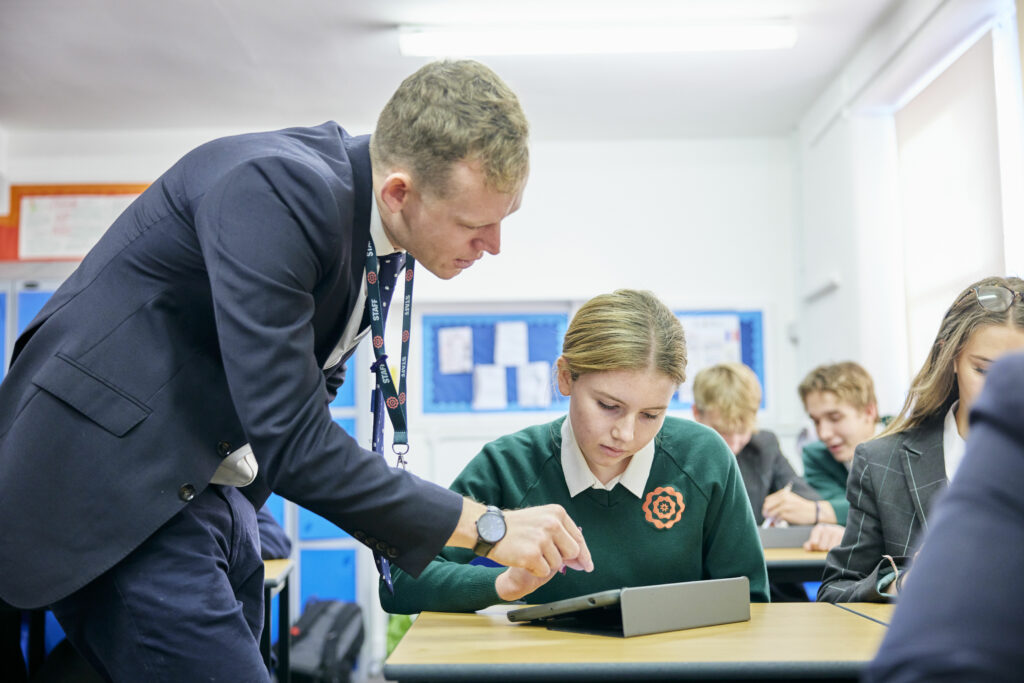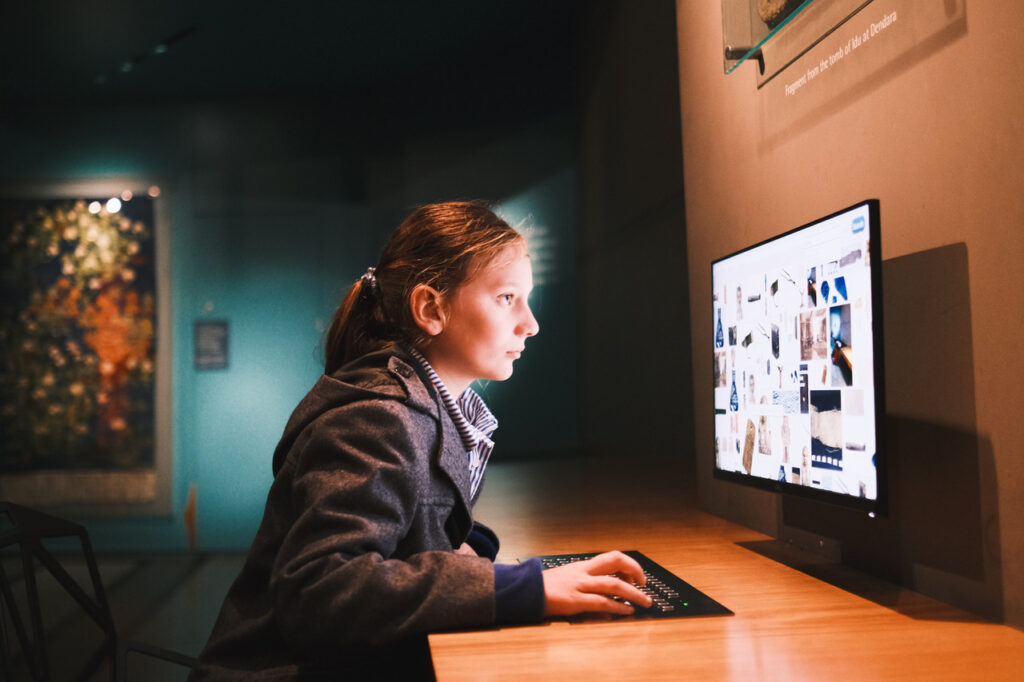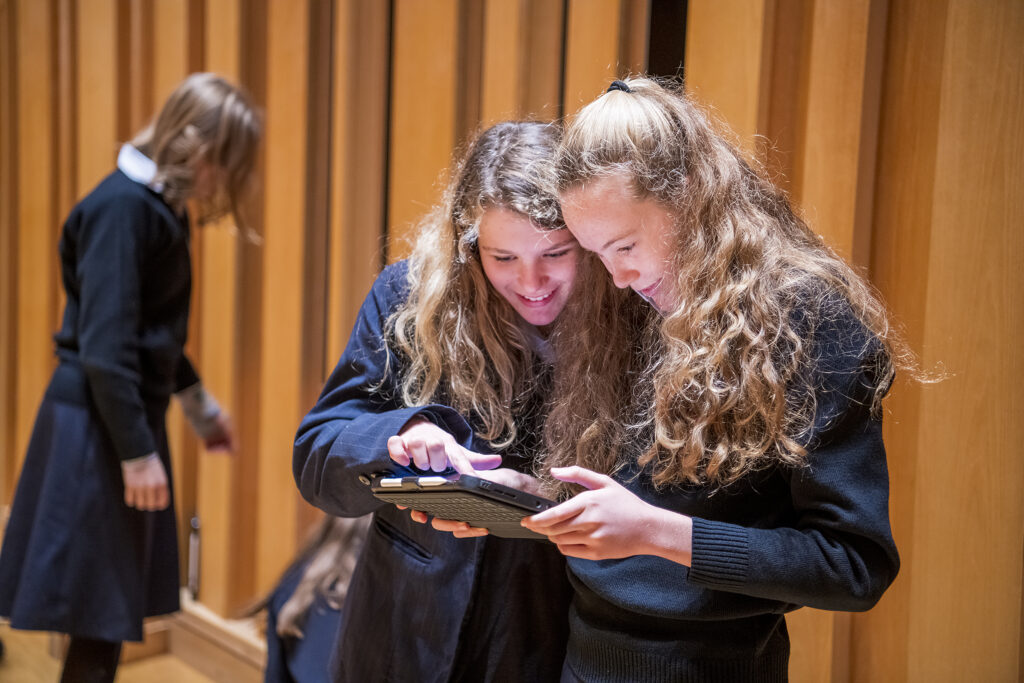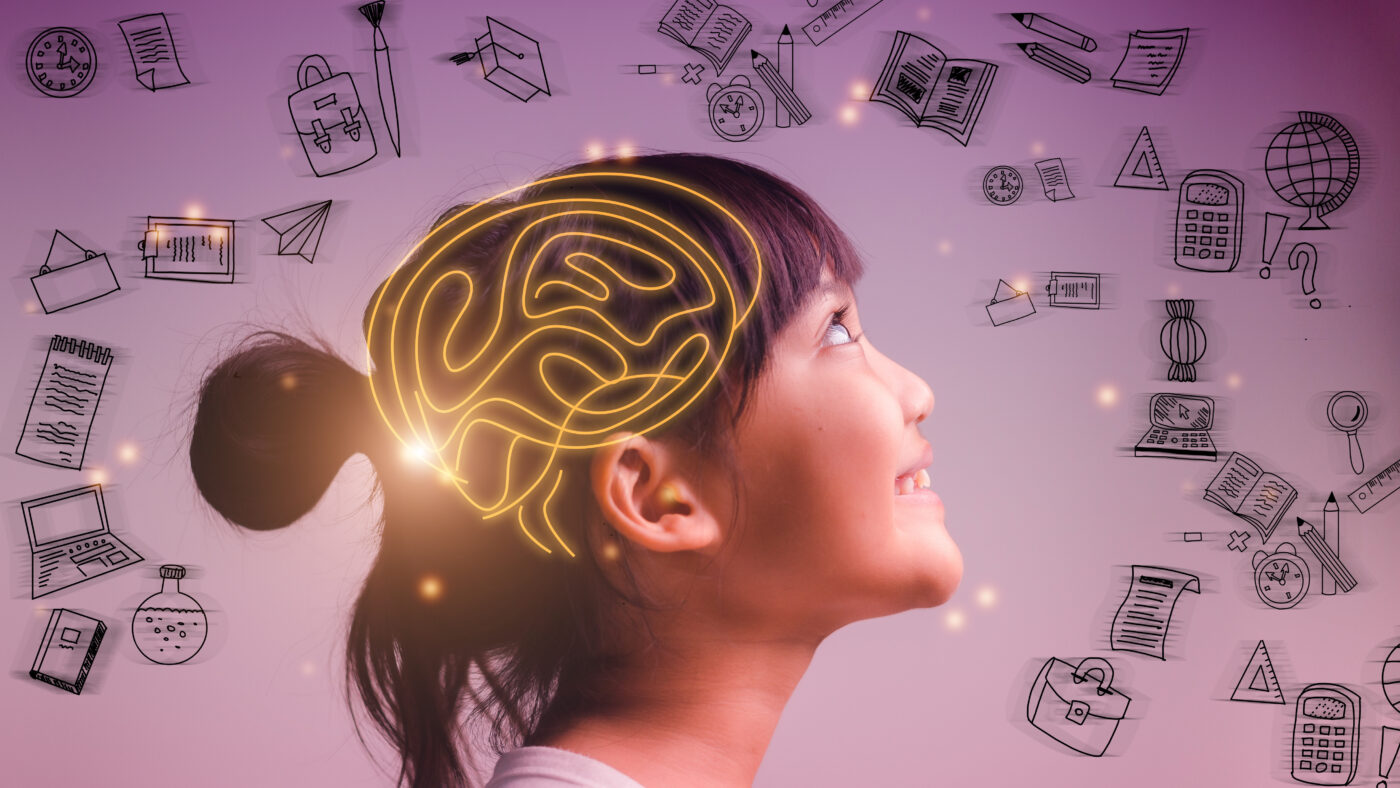The city’s children are growing up in the age of AI. But how is this generative technology impacting their learning? We speak to local schools and discover how they are utilising the positive potential AI can bring to education.
How many times have you interacted with artificial intelligence today? It’s probably more than you think. Even if you’re not actively using AI tools in your professional or personal life, AI is being used to generate the adverts we see, provide customer service, conjure artistic works, assess risk in insurance applications… its capabilities are growing each week. AI is certainly nothing new, but the way we are using it has changed dramatically in the last two years. Especially in the education sector.
While traditional AI is best used for spotting patterns and problem solving (proving popular with companies handling data), generative AI (GenAI) can create new content – be that audio, visual or language. The use of GenAI exploded in 2022, when OpenAI launched an early version of the GenAI chatbot ChatGPT. Since then, anyone with an internet connection has had the power to generate any kind of visual and audio content they like using this technology.
According to the January 2024 report Generative AI in education Educator and expert views by the Department for Education and The Open Innovation Team: “Teachers and experts acknowledge that GenAI could have a transformative impact on education. From helping teachers save time by automating tasks, to improving teaching effectiveness by personalising learning for students, there is significant potential for GenAI to benefit the sector. At the same time, there is considerable concern about the risks it presents, as well as scepticism about whether these can be mitigated.” Research from the report shows that GenAI use among students and teachers has soared rapidly over the last year or so: by November 2023, a survey from TeacherTapp found 42% of primary and secondary teachers had used GenAI in their role (an increase from 17% in April of that year); pupils and students may be using GenAI more than their teachers; and 74% of online 16- to 24-year-olds in the UK have used a GenAI tool.
Meanwhile, in February 2024 The Guardian shared the results of a survey of more than 1,000 UK graduates conducted by the Higher Education Policy Institute. It found that 53% were using AI to generate material for work they would be marked on. One in four are using applications, such as Google Bard or ChatGPT to suggest topics and one in eight are using them to create content.
Bristol’s pupils are preparing to enter a world of further learning and professional work that will without doubt interact with AI on an increasingly regular basis.
So, to ensure that they are aware of these tools’ positive potential (such as boosting efficiency, problem solving and aiding special educational needs development), as well as the ethical and intellectual risks they pose (factual inaccuracies, plagiarism and a general over-reliance on technology), schools have an important role to play.
That’s why we wanted to speak to a selection of leading educational institutions in the region to see how GenAI is impacting their curriculum.
Ed Keen, Digital Learning Lead, Clifton High School
“Clifton High School increasingly recognises the need for our pupils to gain practical experience and hands-on knowledge in programming as well as understanding the fundamentals of ‘machine-learning’. Lessons engage Year 7 and beyond pupils to create their own machine-learning model and navigate online software tools. Using the beginner-friendly visual programming language of Scratch, a block-based visual programming language to create website projects, they progress to Python, a more advanced application of the same purpose.
Working closely with industry leaders”
“We consistently review training initiatives for both students, staff members and, in turn, translate this learning to our parent-body. As the central hub for AI CPD in the Bristol Education Partnership, we work closely with universities and industry leaders to guide students in lesson time, providing lectures and workshops for our staff community.

“Clifton High School is acutely aware of the misinterpretation of web-based platforms and is committed to ensuring that the safety of our pupils is paramount in our responsibility as educators. Safeguarding implementation methods are communicated with an open-door and open-minded approach to guide pupils and their families on becoming digitally resilient and aware of the benefits and pitfalls associated with AI. The optimised safeguarding training our teaching staff receive enables them to monitor and be mindful of how a pupil’s submitted work can be affected by AI. We openly discuss the boundaries of real learning vs simulated knowledge to optimise a child’s understanding of AI use and misuse while employing filtering and blocking software, network monitoring and teacher supervision.”
Clifton High School has a dedicated blog on its website: cliftonhigh.co.uk/artificial-intelligence-in-the-clifton-high-school-classroom
Stuart Dalley, Senior Deputy Head, Badminton School
“Currently, the technology is being incorporated into the curriculum in a gradual fashion, with departments given a degree of autonomy to use AI to enhance learning as best meets the needs of the pupils in their subject. This means that some departments are using AI tools to enhance critical thinking among pupils as an additional tool in learning, while others favour a more conventional approach; this mixed economy helps to enrich the learning experience at Badminton. That said, our current line is very much geared towards the importance of enabling pupils to think for themselves and asking that they use their own ideas and creativity first and foremost. While AI might provide readymade answers to a range of queries, pupils will not have access to this in exams and we would not wish to create a learning culture in which AI stifles individual creativity and thinking. As with many schools, our approach to AI is very much in development.
Ideas and creativity first”
“We are engaging both pupils and parents with AI, but we also very mindful of the very different opinions and views on it and we are adapting accordingly. That said, we are very clear with pupils on what is acceptable use of AI and we and are actively following the guidance on this from JCQ (this is the organisation that acts as a single voice for issues related to the administration of public exams). There are ways in which we monitor student use of AI in submitted work; we are very clear with pupils about our expectations in this area and, likewise, of the risks for exam year groups of not following JCQ guidance.”

Tom Church, Digital Strategy Lead and Deputy Head of English, Sidcot
“At Sidcot, teachers embrace AI judiciously, offering students diverse tools for creativity and problem-solving. Examples include chat-bots aiding history research, AI-generated and differentiated quizzes for PE revision, and AI-generated art complementing English narratives. Such integration prepares students for a future where AI is prevalent, equipping them with essential skills for tomorrow’s workplace.
Essential skills for tomorrow’s workplace”
“Students at A Level and IB, which include significant coursework components, are explicitly trained in the use of AI as a research tool. Younger students learn about AI, computing, and internet ethics in ICT and PSHE classes. A recent Parental Engagement Evening explored ICT in the classroom as well as AI’s educational implications. These initiatives ensure students and parents grasp AI’s significance while fostering responsible digital citizenship across the curriculum.

“Education about academic honesty is a crucial component in student work. ‘AI checker’ services estimate the likelihood of AI-generated writing; however, in the ongoing digital arms race reliability can vary. Consequently, knowing the student is a powerful tool in assessing the fidelity of assignments. Teachers gauge whether the writing aligns with the student’s typical expression. Checking for American spellings and idioms can quickly identify AI input. Despite technological tools, teacher judgment remains vital in assessing academic integrity.”
Clare Fraser, Head Teacher, Cleve House School
“AI is being integrated into our International Baccalaureate (IB) curriculum. It is an important tool supporting our work, enhancing curriculum planning, progress tracking, student portfolios and communication with parents. We plan to support our senior leaders in coaching junior staff in the use of generative AI. This will enable teachers to incorporate AI tools into classroom activities, fostering a culture of continuous learning and innovation. We hope to elevate student learning and also enhance teacher development.

“As an IB secondary, our students are taught in the basics of AI as part of a comprehensive digital literacy and ethics programme across the curriculum. This responsibility is shared by all teachers, ensuring that our students are well-equipped to navigate the digital world responsibly and effectively. This stance is communicated to, and understood by, our parents.
“Our small class sizes and project-based learning approach enable us to closely monitor the use of AI. Teachers are deeply involved in pupils’ learning process, assessing students through their progress and use of direct evidence, rather than just the final product. This approach fosters the responsible and ethical use of AI.”
clevehouseschool.com
Gary Henderson, Director of IT, Millfield
“Problem solving, ideation, summarisation, translation and recommendation are just some of the benefits which AI can provide for our students and staff. There are logical points for the inclusion of AI into the computer science curriculum and in lessons on research skills, where we can teach students both about AI and how to use AI tools.
“In addition to this, we also look to include it across all subjects given that AI has the potential to impact all areas of knowledge.
“Students are already using generative AI tools independently, and therefore it is important to engage with students about appropriate use of Generative AI tools along with the risks and challenges. We want students to benefit from the potential of AI tools but equally they must be aware of risks and constraints such as those related to coursework. Equally we need to provide information to parents as to what is acceptable, balancing the benefits and the risks.

“AI detection platforms exist, however these have not proven to be reliable. As such the key is building awareness with students as to what is acceptable and what is not. We also ensure high-quality teacher student relationships and teacher professional judgments so as to help identify where misuse may have occurred.”
millfieldschool.com
Matthew Pattie, Deputy Head – Academic, Bristol Grammar School
“We’re actively creating opportunities to work alongside AI rather than against it. Pupils are encouraged to ‘beat the bot’; exploring how and where they can improve an AI generated response. For teachers, AI tools can create short answer quizzes, or differentiated versions of text providing resources appropriate to all learners. AI sessions are delivered to all pupils as part of our Study Skills Programme. Our focus is really on what AI, and in particular Large Language Models are and how they work. We want pupils to understand how they are built and some of the problems inherent with AI. For example, AI has proved problematic in generating stereotyped imagery – try typing in ‘generate a manager’ to pictorial AI and it will, nine times out of ten, produce a white middle-aged man.
Pupils encouraged to ‘beat the bot'”
“Pupils have a real love of learning at BGS, teachers are tapping into this and showing pupils that using AI to ‘short cut’ the learning process can negatively impact developing their schema or long-term memory. Like the ‘satnav effect’, we stress over-reliance will lead to lost knowledge – a message that is landing well with our pupils.
“We educate pupils on the ethics of AI regarding academic honesty and integrity. One of our core school values is integrity in support of this, every pupil signs an academic honesty agreement. We also pride ourselves on knowing our pupils and their standard of work extremely well – but we also provide guiding principles to all teaching staff detailing how to spot work generated by AI. By educating pupils that using AI is not ‘wrong’ in and of itself, but that it needs to be used in the right way and cited appropriately, enables a culture of open AI learning rather than covert usage.”
bristolgrammarschool.co.uk
Paul Dwyer, Head, Redmaids’ High School
“Engagement with AI at Redmaids’ High is focused in three distinct, but overlapping areas. Allowing students to understand how their learning in any given subject might be augmented through using AI resources is a key focus; we want students to understand that these are tools that can aid and enhance their progress, without replacing the need to think deeply and reflect critically on their part. Highlighting to students what considered use of AI might enable allows for empowerment in the same vein as their use of other tools and resources.
“Fact-checking and identifying evidence carefully have always been chief among our messaging to students when making use of technology, and to this we have now added a focus on ensuring they retain their own voice and sense of expression.
“Recent months have seen us develop further the idea of AI as a subject worthy of study on its own terms, not just as a lens through which to view their studies in other disciplines.
“The evolution of our creative technology curriculum in Year 7 will allow students to engage with the ethics and concepts that drive the use of AI in the wider world, as well as develop increasing confidence in their use of it to innovate and work through real-world problems.

“None of this work would be as successful without supporting staff in their own understanding and engagement with AI tools. Our digital education panel has been convened to help set up and continue to refine parameters for the safe and effective use of AI in the classroom, as well as identifying ways in which workload for colleagues in all areas might be alleviated in the months and years to come.”


